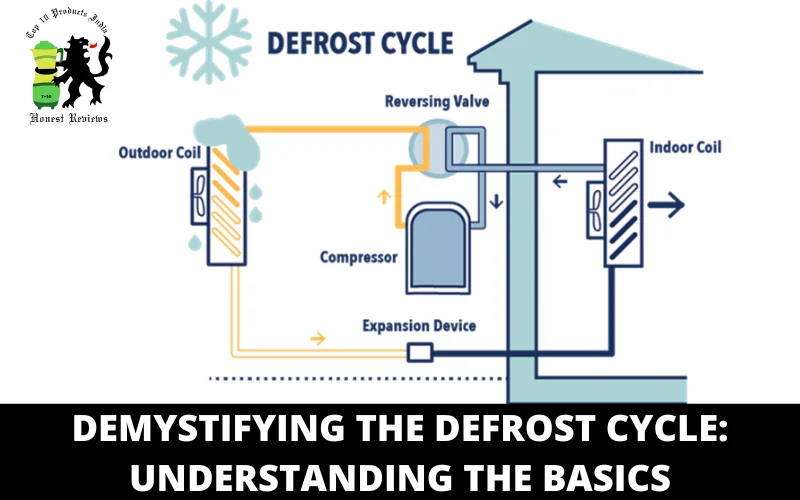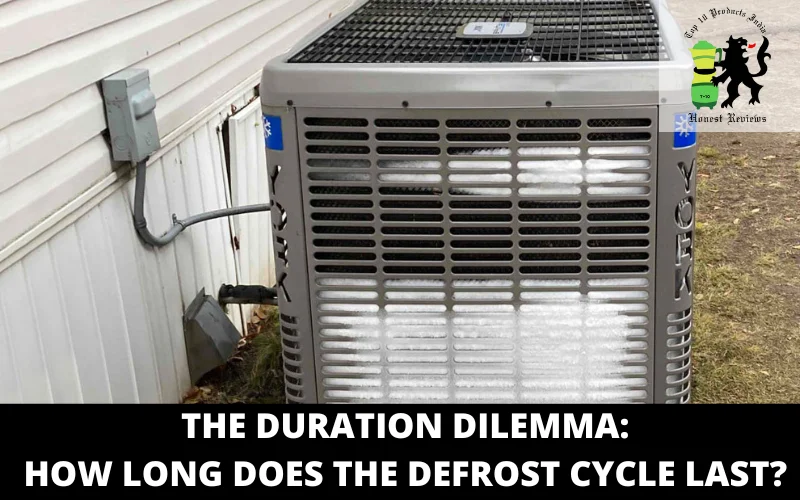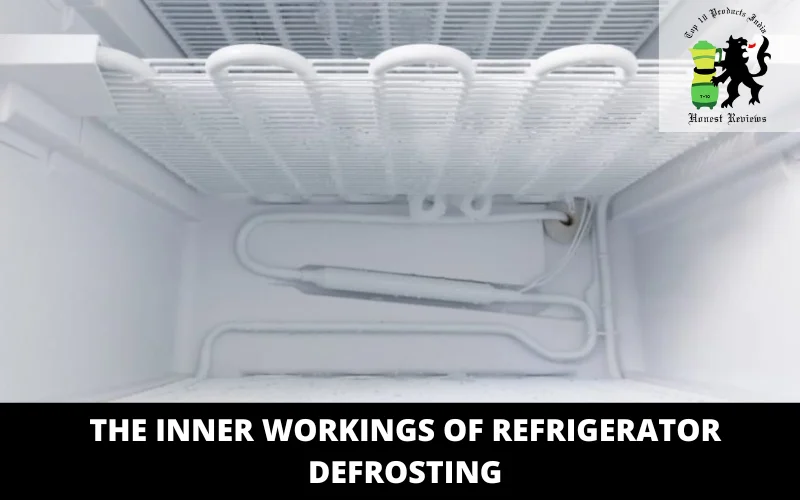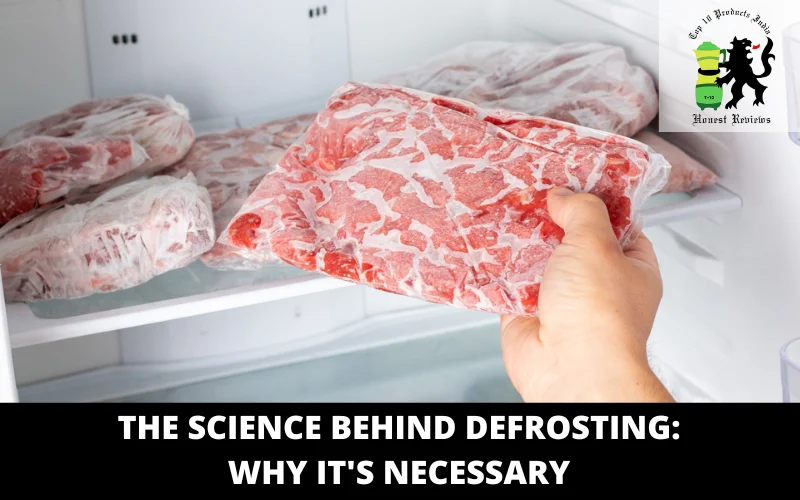Many of you might not know much about the defrosting cycle of refrigerators. After all, you are not facing this thing every now and then, right? So, let me answer directly. The period is 20 to 30 minutes. However, various factors play a role, such as ambient temperature and refrigerator model. It will heavily depend upon the amount of ice build-up that has taken place in the freezer.
The defrosting mechanisms are created in different styles by different brands, and the features impact a lot of things, even the defrosting cycle length. Let me share with you the regular monitoring and maintenance along with some myths related to the defrost cycle period on a refrigerator.
Demystifying the Defrost Cycle: Understanding the Basics

- Purpose: The defrost cycle avoids unwanted ice build-up in the freezer compartment of a refrigerator, avoiding blunders and unwanted electricity bill spikes
- Automatic process: Many modern-day refrigerators do come with defrost cycles, which means the ice gathered will automatically get defrosted if it hits a certain limit.
- Heating element: As soon as there is ice accumulation, the defrost heater, commonly known as a heating element, gets activated, which raises the temperature and melts up the ice.
- Evaporation: After ice melting takes place and there is just water left behind, it will be pushed through a tube into a drip pan. A few modern-day refrigerators even come with some fancy features to treat that water.
- Temperature regulation: The normal time for a general defrost cycle lasts for 20 to 30 minutes. A thermostat or timer controls it in most cases, but in a few older models, just the manual thing is needed.
- Frequency: How many times the defrost cycle runs highly depends upon your usage pattern and humidity levels.
The Duration Dilemma: How Long Does the Defrost Cycle Last?
To understand the duration of a defrost cycle, first of all, you need to understand the factors that are impacting it. I already advised that it is between 20 and 30 minutes, but I cannot use the same words for each and every refrigerator model out there.
There are a few modern ones that hardly take 10 minutes to defrost the freezer, while a few older models can even last for 40-45 minutes. A few modern-day refrigerators do have an advanced sensor and certain algorithms that smartly point out that there is a requirement for defrosting to maintain the efficiency of the refrigerator.
The one in my home is pretty old, and it requires manual intervention. I cannot explain to you how difficult it is. You can also monitor the duration of the defrost cycle in your refrigerator to figure out how much time it will consume.
And I’d highly recommend that if you’re using a manual old version refrigerator like me, keep a sharp eye so that too much ice doesn’t build up; otherwise, the defrosting cycle may last for much longer than you expect.
The Inner Workings of Refrigerator Defrosting
When does the defrosting cycle initiate? Well, the answer is simple. When there’s a limit to the ice build-up inside the refrigerator compartment, the normal science behind defrosting is providing heat, and the job is played by the heating element.
Then, once the water is drained outside, there won’t be any freezing. Now, if you are using the very old versions of refrigerators, let’s say, those that existed before the 2013 -14 era, I’d say you’d need to turn off the whole refrigerator. That’s a problem. However, modern-day refrigerators will prevent freezing by themselves.
Well, there are certain factors that clearly indicate that it’s your time to do hassle and defrost your freezer. You’ll notice some thick layers around your freezer compartment, and you might not be able to close the freezer door comfortably. It is the biggest sign that explains the requirement.
Sometimes, you even see that you’re not doing anything fancy, but your electricity bills are still shooting up much higher than they used to. It’s pretty obvious that one of your cooling or heating appliances is sucking this blood. If you do have a refrigerator in your home, then you need to consider it on your list of culprits.
Now, if there is some ice build-up in your freezer, you’ll be able to see water leakage right below your refrigerator, and a water pool will be formed. Also, there are some unusual noises because the compressor is working in a different style, humming or buzzing, which you are able to hear more clearly at night because your kids are not creating cues at that time.
Optimizing Defrost Cycle Efficiency: Dos and Don’ts
- Do regular monitoring: Every day, whenever you feel like there’s a slight ice build-up, try to go for the defrosting option. Don’t wait for ice to gather.
- Do clean condenser coils: Now, if you’re really doing that, then let me tell you they will efficiently transfer the heat this way to optimize the defrost cycle.
- Do keep the freezer well organized: There are greater chances of ice build-up when the freezer is not able to figure out how much cooling to provide. This generally happens when there is a lack of organization of items in the freezer. In simple words, I’m recommending you not to overload the items inside the freezer.
- Don’t use sharp objects: Now, if you see great ice build-up in your freezer and if you have never seen anything like that before but have to deal with it, the very first idea that might come to your mind is to use a fork or knife or something. But let me tell you, you’re very close to damaging yourself and your refrigerator’s interiors and components. It’s a bad idea.
The Science Behind Defrosting: Why It’s Necessary
Well, do you really prefer hearing the unwanted buzzing noise of your freezer? Would you literally appreciate it if an extra 3-4 thousand were added to your electricity bill, or would you literally enjoy eating frozen instead of cool foodstuff?
Well, the accumulation of ice can create more than five problems for you, and if you are not converting that ice build-up into water and draining it away, you’ll have to choose the option to live with these problems.
I don’t feel like you will be choosing that option. Right? In short, excessive ice build-up will definitely hamper cooling performance.








